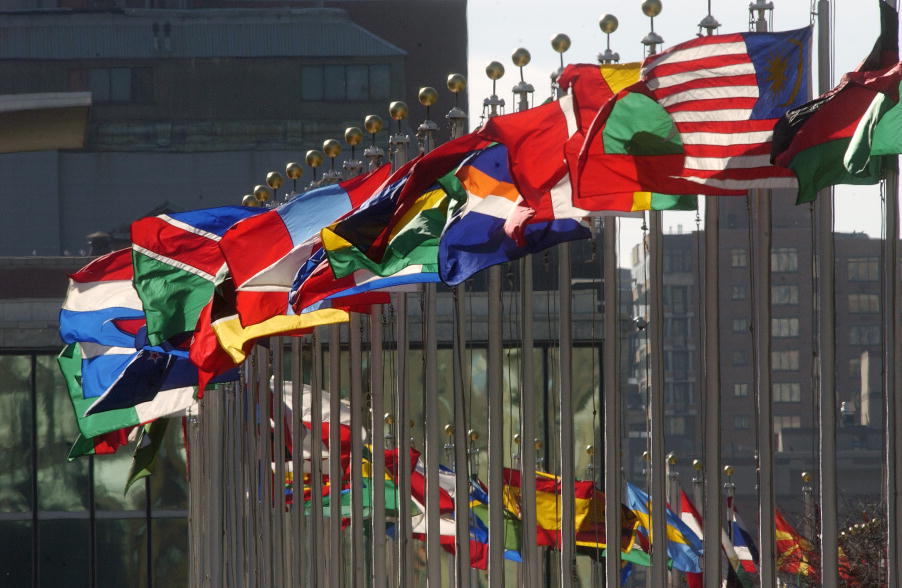Written by Paul Sharp.
From a combination of instinct and convention, most people have a sense that diplomacy is and ought to be important. They are much less clear on what diplomacy is and what diplomats actually do. For much of the past, this did not matter for both were thought to be far removed from the concerns of ordinary people. This is no longer the case. Thanks to the revolutions in the technologies of how information is produced, distributed and exchanged, ordinary people are increasingly aware of what diplomats do, and diplomats are increasingly involved in managing, expanding, and exploiting this awareness.
The resulting ‘new public diplomacy’as it is sometimes called, generates its own challenges. Embarrassing revelations of the unflattering views which some ambassadors have of the governments to which they are accredited from sources like WikiLeaks can cause anger and amusement in equal parts. So too can the “schoolboy errors” of some diplomats when they share the details of negotiations or aspects of their private lives on social media.
More importantly, these novel developments combine with changes of a much older kind – shifts in global and regional balances of power, for example, and revivals of nationalist and populist politics in parts of the world from which they were thought to have disappeared. The result is that in a world which is becoming increasingly uncertain and dangerous, diplomacy cannot be counted on to ease the uncertainty or reduce the danger. At its worst, it is placed in the service of those who promote both. At its best, it remains preoccupied with building and decorating the institutions of an international order whose very foundations are increasingly questioned.
What is to be done? The answer involves revisiting some basic definitional questions about diplomacy –what it does, how it is done, and who actually does it. Diplomacy involves managing a specific type of relations between human beings – those characterized by separateness. This has not changed and is unlikely to do so. We associate diplomacy with the relations of sovereign states, but they do not have to be. History and pre-history show that diplomatic relations predate sovereign states, and it is easy to imagine them postdating sovereign states. So long as people live and act in groups which generate in-group and out-group relations that are different from one another, there will be a need for diplomacy.
Diplomacy involves prioritizing the relations themselves, rather than what they are about or the goals for which they are being pursued by the parties engaged in them. Above all, they prioritize avoiding unnecessary misunderstandings and unwanted conflict. Hence the focus of good diplomacy on acting with intelligence and tact grounded in empathy (not sympathy) for what the others want. This requirement remains unchanged, but respect for it has become greatly diminished across the entire political spectrum and thus within the reward structures of the diplomatic services which represent the various actors in it.
Diplomacy requires people who understand its requirements and value them. This is where the great changes have taken place. International relations are no longer primarily undertaken by a professional elite insulated from the emotions, passions and priorities of people consumed simply by getting what they want. Leaders, other government departments, private enterprises, social movements, criminal organizations, revolutionary groups, and powerful individuals want to do their own external relations and are increasingly able to do so. They often have little interest in conducting these relations diplomatically, however, with results which unnecessarily raise the international political temperature just as surely as carbon emissions raise the actual temperature.
The solution is very simple but very difficult. There is no going back to the insulation of the ‘old diplomacy’. People’s expectations that they should be involved in international relations and their ability to be so both preclude that. What people have to do is learn to be diplomatic themselves in the terms set out above –paying more attention to what the preservation of relations between groups requires and less on pursuing interests, solving problems, and preserving institutions. Eventually, they will, of course. History suggests that experience and bad experiences, in particular, are great teachers. The social sciences allow us to hope, however, that the experience of others, in this instance the accumulated experience of diplomatic practice dearly purchased down the ages, can provide a shortcut to understanding how the relations of the many different participants in international life today can be better managed than they are at present.
Paul Sharp is Professor of Political Science at the University of Minnesota Duluth and the author of several books including Diplomatic Theory of International Relations (Cambridge University Press, 2009). His most recent book is an introductory text, Introducing International Relations (Routledge, 2018) and his Diplomacy in the 21st Century: A Brief Introduction is in press, again with Routledge. Image Credit: CC by United Nations Photo/Flickr.

